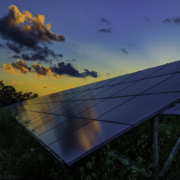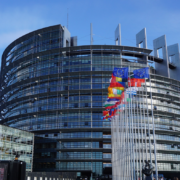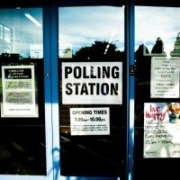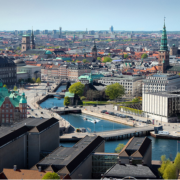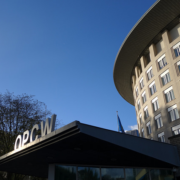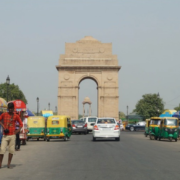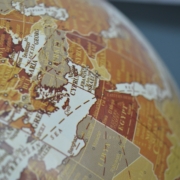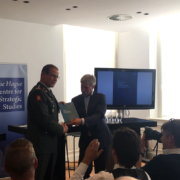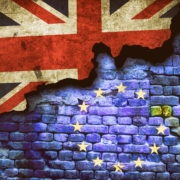We hebben er een nieuw handelsakkoord bij: het United States-Mexico-Canada- akkoord (USMCA). Ik breek mijn tong over de afkorting, maar president Trump vond die geweldig.
USMCA is de nieuwe naam voor het Noord-Amerikaanse vrijhandelsakkoord Nafta. Dat mag niet meer zo heten, omdat het anders zou lijken dat Trump ten onrechte zou claimen dat hij een historische deal voor de natie en de wereld had gesloten.
Met de ontmanteling van Nafta heeft hij zijn zin gekregen. Bij zijn aantreden wilde hij al af van ‘het slechtste handelsakkoord dat ooit was gesloten’. Het paste in zijn aanval op alle multilaterale handelsovereenkomsten die ook leidde tot het opblazen van de Trans Pacific Partnership, waarmee Aziatische landen samen met Amerika een dam tegen de groeiende macht van China wilden opwerpen.
De bijl erin
Of het USMCA echt een briljante zet is, valt nog te bezien. Het mag na zes jaar worden aangepast. Als het voor Amerika te weinig oplevert, mag de bijl erin. Die dreiging is voor investeerders niet aantrekkelijk. Die willen zekerheid voor de lange termijn. Verwacht wordt dat de echt grote investeerders nu terughoudender worden. Dat gaat welvaart en banen kosten.
Dat was echter precies de reden waarom Trump van het oude akkoord af wilde. Want Amerikaanse bedrijven verplaatsten hun productie naar het lagerelonenland Mexico en de Canadezen overspoelden Amerika met hun goedkope zuivel. Alle partijen, inclusief Amerika zelf, hebben in de onderhandelingen water bij de wijn gedaan. Ook daardoor is het de vraag of het akkoord veel oplost. Toch is het akkoord goed nieuws. De kou is even uit de lucht. Dat gold ook voor de deal die EU-commissievoorzitter Juncker eerder dit jaar met Trump sloot. Om een handelsoorlog te voorkomen beloofde hij dat de Europese Unie meer sojabonen en LNG of vloeibaar gas zou gaan importeren.
Afgelopen weekeinde hoorde ik in Riga de voormalige Letse president Vaira Vīķe-Freiberga zeggen dat het goede van Trump is dat hij zo vaak van mening verandert dat hij uiteindelijk ook wat goeds kan zeggen. Omarmt Trump nu ineens het multilateralisme en wordt alles weer koek en ei? Het antwoord is nee.
Defensiebestedingen
Als de Navo-lidstaten niet meer aan defensie besteden, zal dat handelspolitieke gevolgen hebben. De druk op Duitsland en Denemarken om af te zien van de Northstream 2-pijpleiding neemt toe. Op zich heeft Trump een punt wanneer hij zegt dat hij Duitsland niet tegen de Russen wil helpen beschermen als Merkel afhankelijker van Russisch gas wil worden.
Hij heeft het atoomakkoord met Iran opgeblazen en dreigt Europese bedrijven met sancties als ze zaken met Iran blijven doen. Het Franse Total heeft zich inmiddels uit Iran teruggetrokken. En de handelsoorlog met China is nog lang niet voorbij. Dit, en Trumps onvoorspelbaarheid, maken de oude bondgenoten van Amerika geïrriteerd en argwanend.
De speech van Trump voor de Algemene Vergadering van de Verenigde Naties versterkte dit. Hier wees hij de ‘ideologie van globalisme’ af. Weg met het multilateralisme, leve het patriottisme en de nationale soevereiniteit. Hij pleitte voor nieuwe vormen van samenwerking gebaseerd op patriottisme, voorspoed en trots. Kennelijk is het USMCA daarvan een voorbeeld.
Lees wekelijks de column van Rob de Wijk op de website van Trouw!

